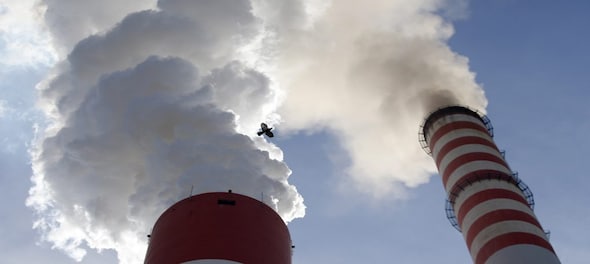
The increasing climate dangers will intensify international tensions and pose a threat to US national security, according to a series of reports from US intelligence and security agencies.
While countries debate on how to respond to the climate crisis, poorer countries will be the most affected, the assessments by US intelligence agencies, Pentagon and the Department of Homeland Security, have shown.
This is the first ‘National Intelligence Estimate on Climate Change’ by the Office of the Director of National Intelligence that weighs the impact of climate on national security through 2040.
“We assess that climate change will increasingly exacerbate risks to US national security interests as the physical impacts increase and geopolitical tensions mount about how to respond to the challenge,” the Office of the Director of National Intelligence said.
Biden seeks change
The reports emerged as US President Joe Biden prepares to participate in the UN climate change conference, COP 26, that starts at the end of this month in Glasgow.
President Biden moved to rejoin the 2016 Paris Climate Accords on his first day in office. The 2016 agreement aims to boost global efforts to reduce emissions. Former President Donald Trump had withdrawn from the global climate pact in 2017.
Challenges ahead
The 27-page report says that some countries will try to seek advantage in developing new technology, while others will resist, especially where fossil fuels contribute more than 50 percent of total export revenues. US efforts to speed up energy transition is likely to strain relations with the countries depending on fossil fuel exports, the report said.
"A decline in fossil fuel revenue would further strain Middle Eastern countries that are projected to face more intense climate effects," the report said.
Droughts will increase the likelihood of clashes over water. Pakistan and India have long been at loggerheads over water. Similarly, the Mekong River basin could become a bone of contention between China, Cambodia and Vietnam.
“In the Middle East and North Africa, about 60 percent of surface water resources are transboundary and all countries share at least one aquifer, according to the World Bank. Several aquifers are also vulnerable to salt water intrusion, even from minor rises in sea levels, increasing the potential for conflict,” it said.
The report says countries acting alone may deploy futuristic geo-engineering technologies to counter climate change. Negative effects of such technologies could be felt by another region and anger other nations.
The crisis could lead to “displacement, loss of livelihoods, weakened governments and in some cases political instability and conflict,” the report said.
The Pentagon report identified 11 countries where food, water, energy and health security are at risk. These countries -- Afghanistan, Burma, India, Pakistan, North Korea, Guatemala, Haiti, Honduras, Nicaragua, Colombia and Iraq -- are less able to adapt, increasing the risks of instability and internal conflict.
Concern for all
One way to counter the impact of climate change is through use of breakthrough technologies, including accepted geo-engineering tools.
Security agencies and militaries around the world have been accounting for global warming in their planning for some time now. The NATO made climate change a major focus of defence alliances earlier this year. In a report, the British also spoke of an overhaul of military operations to prepare for climate-related deployments in the future.
"Governments increasingly recognise that climate change is shaping the national security landscape like never before," Erin Sikorsky, Director of the Center for Climate and Security, told BBC.
(Edited by : Shoma Bhattacharjee)
First Published: Oct 22, 2021 6:30 PM IST
Check out our in-depth Market Coverage, Business News & get real-time Stock Market Updates on CNBC-TV18. Also, Watch our channels CNBC-TV18, CNBC Awaaz and CNBC Bajar Live on-the-go!


Lok Sabha Election Phase 2: Experts decode the key trends and issues in key battleground states
Apr 26, 2024 11:53 PM
2024 Lok Sabha Election | Which way the wind blows in the second phase
Apr 26, 2024 6:09 PM

